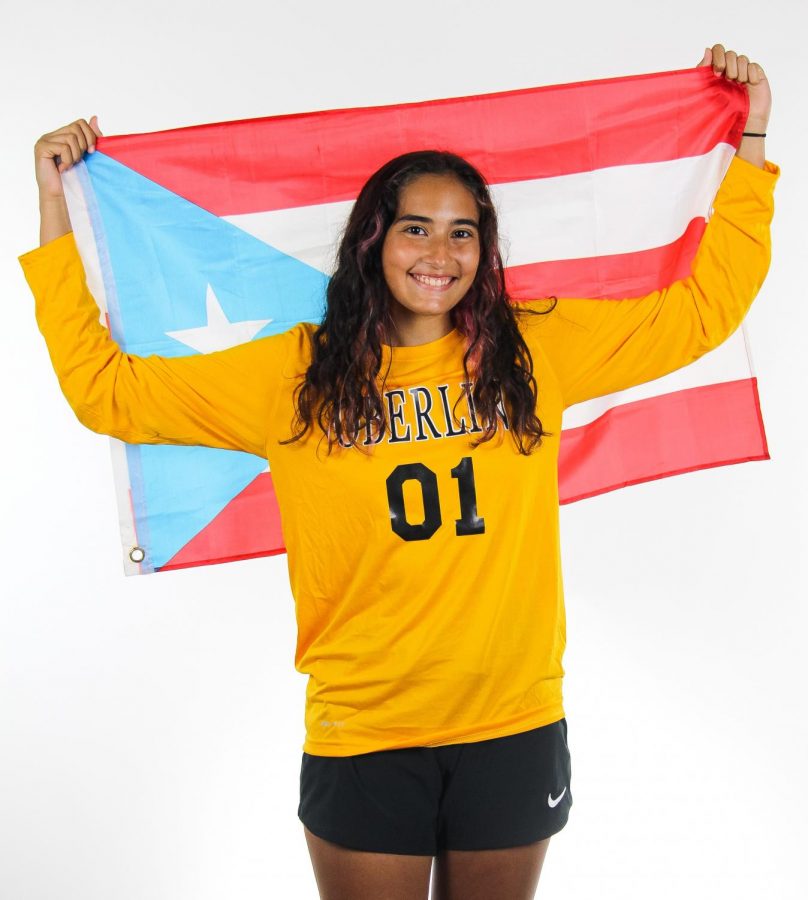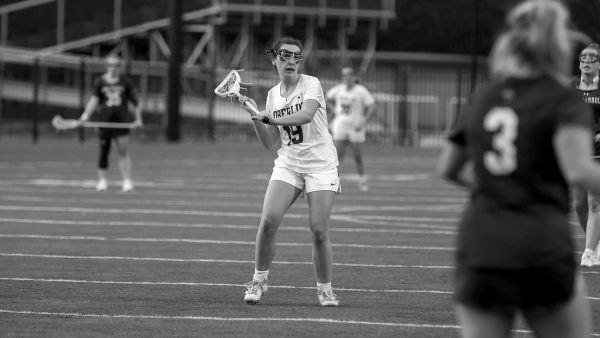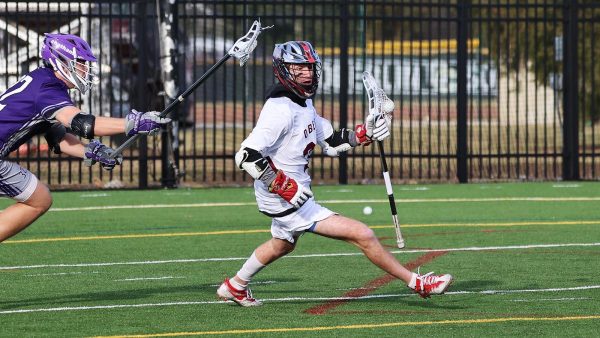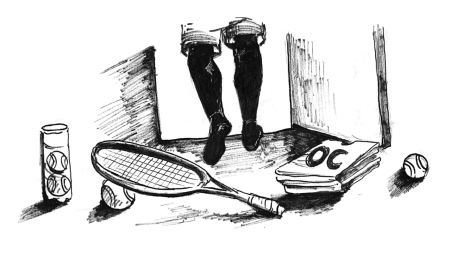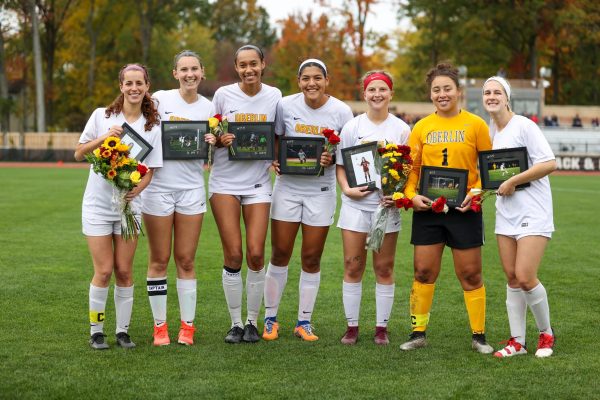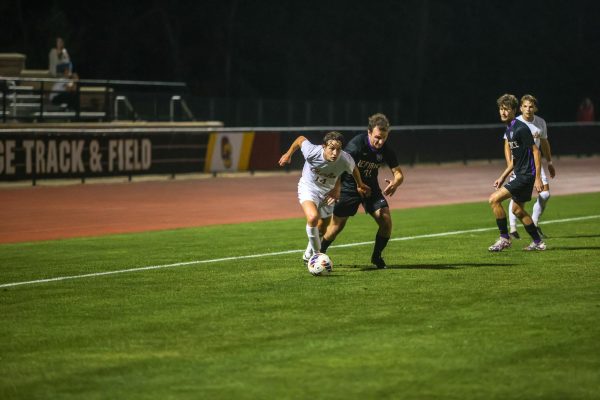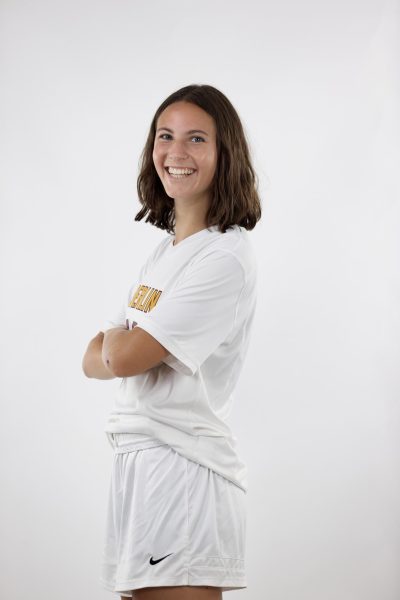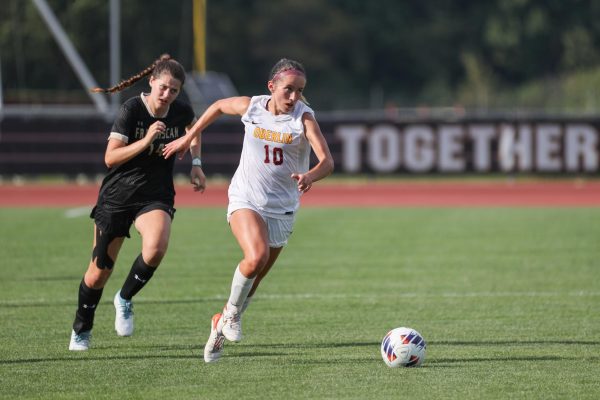Oberlin Athletes Play Internationally
First-year women’s soccer player Adriana Morales poses with the Puerto Rican flag.
Division III sports have the impression of being an option for students who are not looking to go into sports professionally. However, three Oberlin athletes have had the opportunity to prove their high level of play while representing their countries.
Women’s soccer player and first-year Adriana Morales returned last month from Puerto Rico, where she trained with the national team after years of never being selected.
“I had been in a goalkeepers program that attracts people to the national team to train with them,” she said. “I had been called up to the U-15 back in the day and didn’t make it, and I fell off the radar. Same thing for U-17, and then again for U-20 and finally made it.”
Morales’ hard work paid off. Not only was she able to train with the national team but she also got to see some playing time in their friendlies, exhibition matches, against Guyana.
“It was very shocking but felt good,” she said. “I was kind of emotional the first time I put on the uniform; it made it kind of real. It was just a wild thought that I was on the big stage.”
Puerto Rico’s men’s and women’s teams have never made the FIFA World Cup, but through her work ethic, Morales is hoping to be a part of the change.
“Team Puerto Rico is working towards the World Cup qualifiers,” she said. “There’ll be another camp during the spring semester, which will hopefully lead to qualifying for the Cup. We have a bit of a tough bracket, but I hope to be a part of that qualifier team.”
Morales maintains that, despite the amazing opportunities she has experienced outside of college sports, she’s glad to be a Division III athlete in a community as academically centered as Oberlin.
“When I was in Puerto Rico, there was no time for school work. It was just soccer all of the time,” she said. “I wanted [Division] III because I wanted to be a student first, with coaches taking into account your studies and prioritizing it. We were doing something all of the time on the national team. I still stand by my decision to go to a Division III school, but it was amazing to have a soccer-centered experience on the national team.”
Audrey Koren, second-year on the women’s lacrosse team, visited Israel as part of a Lacrosse Birthright program, a branch of the more well-known Birthright program. Lacrosse Birthright gives an opportunity for Jewish athletes all around the world to visit their ancestral homeland and connect with their Jewish roots.
For Koren, being able to not only connect with her roots but to also forge friendships with like-minded people made the trip special.
“It was something I didn’t expect to do, not being very in touch with my Jewishness,” she said. “Going there and meeting Jewish people like me made me more proud to be a part of that community.”
It also gave Koren an insight into Israel itself and the Israeli lacrosse community.
“Within Israel lacrosse, there were a few Muslim people, but everyone was able to come together through sport [which] was really something special to see,” she said. “Nobody cared what religion you were from, what language you spoke, any of that. We all just were there for the love of lacrosse, regardless of background.”
Although there were many prominent discrepancies between the skill levels of the American athletes, as well as between them and the Israeli athletes, they were all able to come together through their common love of the sport, ultimately forging amazing friendships.
“At the time, the Israel national team had two players who lived there who we trained with,” Koren said. “It was an amazing experience playing and training with athletes of such a high level, including a variety of Division I and Division III NCAA athletes. We were also able to form connections with the girls who we were coaching, and even play a few games with the locals.”
Fourth-year softball player V Dagnino, who is experienced in playing competitive softball, decided to try out for the Peruvian national team during their first year at Oberlin.
“I was always playing softball competitively, and prior to freshman year of high school [I’d] always played within my city, the northern part of the Bay,” they said. “Freshman year of high school I started to try out for more competitive teams further away. I tried out for this extremely competitive team and made it.”
Dagnino had been introduced to many coaches, and happened to meet one from who had played for the Peruvian national team.
“It was amazing seeing another Peruvian softball athlete,” they said. “I went to go talk with her … and learned how to contact them.”
Having recently obtained residency papers 11 years after their parents had relocated to the United States, Dagnino was permitted to travel to and practice in Peru. Before Dagnino knew it, they were traveling to Brazil to play in an exhibition game.
However, despite having an amazing experience, Dagnino has since retired from the national team.
“I’ve played world cups [and] pan-American qualifiers from the time I was 13 to the time of [my first] year of college, but [I] stopped to focus on other things,” they said. “Who doesn’t want to travel for free, to experience other things, to play the sport you love for the country you love? But no one really talks about how hard it can be at the age of 13.”
The pressure of the sport, along with the taboo of LGBTQ+ and gender equality issues on the Peruvian team, caused Dagnino to gravitate toward playing Division III at Oberlin.
“I chose [Division] III because I was always the underdog; I was always overlooked,” they said. “But when I came to visit [Oberlin] I just fell in love with the atmosphere and it being so inclusive.”
Regardless of some of the drawbacks, Dagnino reflects on how lucky they are to have had this once in a lifetime experience.
“My family made the effort to come see me play,” they said. “It was my dad’s favorite memory, similarly for my grandfather. Just the support was overwhelming.”
Dagnino also spoke on the lasting impact of not only playing on the national team, but also in being able to see the world.
“My dad always said, ‘the best thing you can offer to a kid, parent to kid, is great education and travel,’ they said. “You never fully understand what’s out there. You never know the experiences of poverty, LGBTQ+, and gender issues until you see them. It’s influenced how I want to pursue my future, working with people and towards equal rights.”
These athletes’ once-in-a-lifetime experiences in sports have allowed them to appreciate people’s differences around the world, affected who they are today, and helped guide them toward who they want to be. At Oberlin, after having experienced the big stage, they have all found a community that fosters not only the competitiveness of their sports but also a passion for learning.


